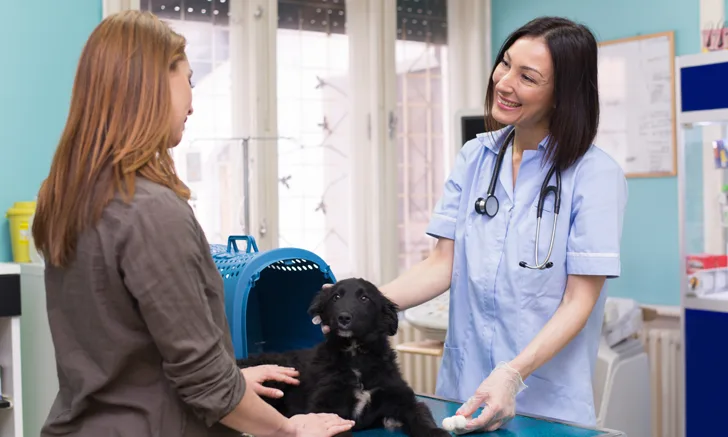
In the Literature
Clise MH, Matthew SM, McArthur ML. Sources of pleasure in veterinary work: a qualitative study. Vet Rec. 2021;188(11):e54. doi:10.1002/vetr.54
The Research …
Stressors (eg, long hours, compassion fatigue, mental health concerns) of veterinary practice are often discussed, and although organizational psychology emphasizes positive aspects of work life and employee success,1 veterinary organizational psychology has only recently started investigating the positive components of well-being in the workplace. Understanding and maximizing happiness in the clinic may provide support to those working in veterinary medicine.
This study explored factors that contribute to enjoyment of veterinary work. Clinicians (n = 273) completed an online variation of the qualitative Ten Statements Test and provided up to 10 responses to a prompt (ie, I derive pleasure from my work as a veterinarian when …).2 Participants had studied in Australia, the United Kingdom, the United States, New Zealand, South Africa, and Canada; were mostly female (67.8%); and primarily worked in small animal practice (49.8%).
Free E-Book: Guidance for Success in Vet Med
Whether you’ll be graduating soon or are already a few years out, don't miss Practical Guidance for New Veterinarians, a free e-book loaded with practical advice from seasoned professionals and refreshers on critical clinical skills.
The majority (97%) of responses referred to positive work elements rather than absence of negative elements. Positive job resources most frequently mentioned were ability to use veterinary expertise, involvement in scholarship, and positive patient outcomes, particularly regarding clinical cases. Mentions of positive job characteristics, particularly variety of work and workplace culture, were also common. Additional responses included relationships with pet owners, patients, and colleagues; recognition; helping patients, pet owners, colleagues, and society; and feelings of self-efficacy or accomplishment.
Using professional expertise aligns with the concept of achieving mastery over one’s environment, which can be a key contributor to well-being.3 Opportunities to develop and use skills are essential for competency and can enhance job satisfaction.
… The Takeaways
Key pearls to put into practice:
Working with others, support from team members, and positive relationships with pet owners and colleagues are sources of satisfaction for clinicians. Debriefing after difficult interactions, mentoring, engaging with professional associations, and participating in peer support programs may be beneficial.
Recognition from pet owners and colleagues can provide encouragement and be a source of motivation. Development of formal and informal recognition programs should be considered.
Helping pet owners was more frequently identified as a source of pleasure than helping patients. Promoting the inherent pleasure of working with pet owners may increase job retention and feelings of career fulfillment.
You are reading 2-Minute Takeaways, a research summary resource presented by Clinician’s Brief. Clinician’s Brief does not conduct primary research.